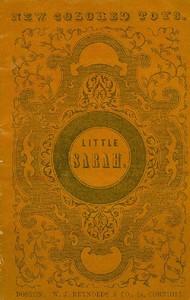|
|
Read this ebook for free! No credit card needed, absolutely nothing to pay.Words: 59803 in 21 pages
This is an ebook sharing website. You can read the uploaded ebooks for free here. No credit cards needed, nothing to pay. If you want to own a digital copy of the ebook, or want to read offline with your favorite ebook-reader, then you can choose to buy and download the ebook. The Inn of the Golden Pear The Mystery of Wilhelm R?tter Little Bel's Supplement The Captain of the "Heather Bell" Dandy Steve The Prince's Little Sweetheart Between Whiles. The Inn of the Golden Pear. Who buys? Who buys? 'Tis like a market-fair; The hubbub rises deafening on the air: The children spend their honest money there; The knaves prowl out like foxes from a lair. Who buys? Who sells? Alas, and still alas! The children sell their diamond stones for glass; The knaves their worthless stones for diamonds pass. He laughs who buys; he laughs who sells. Alas! In the days when New England was only a group of thinly settled wildernesses called "provinces," there was something almost like the old feudal tenure of lands there, and a relation between the rich land-owner and his tenants which had many features in common with those of the relation between margraves and vassals in the days of Charlemagne. Far up in the North, near the Canada line, there lived at that time an eccentric old man, whose name is still to be found here and there on the tattered parchments, written "WILLAN BLAYCKE, Gentleman." Tradition occupies itself a good deal with Willan Blaycke, and does not give his misdemeanors the go-by as it might have done if he had been either a poorer or a less clever man. Why he had crossed the seas and cast in his lot with the pious Puritans, nobody knew; it was certainly not because of sympathy with their God-reverencing faith and God-fearing lives, nor from any liking for hardships or simplicity of habits. He had gold enough, the stories say, to have bought all the land from the St. Johns to the Connecticut if he had pleased; and he had servants and horses and attire such as no governor in all the provinces could boast. He built himself a fine house out of stone, and the life he led in it was a scandal and a byword everywhere. For all that, there was not a man to be found who had not a good word to say for Willan Blaycke, and not a woman who did not look pleased and smile if he so much as spoke to her. He was generous, with a generosity so princely that there were many who said that he had no doubt come of some royal house. He gave away a farm to-day, and another to-morrow, and thought nothing of it; and when tenants came to him pleading that they were unable to pay their rent, he was never known to haggle or insist. Naturally, with such ways as these he made havoc of his estates, vast as they were, and grew less and less rich year by year. However, there was enough of his land to last several generations out; and if he had married a decent woman for his wife, his posterity need never have complained of him. But this was what Willan Blaycke did,--and it is as much a mystery now as it doubtless was then, why he did it,--he married Jeanne Dubois, the daughter of a low-bred and evil-disposed Frenchman who kept a small inn on the Canadian frontier. Jeanne had a handsome but wicked face. She stood always at the bar, and served every man who came; and a great thing it was for the house, to be sure, that she had such bold black eyes, red cheeks, and a tongue even bolder than her glances. But there was not a farmer in all the north provinces who would have taken her to wife, not one, for she bore none too good a name; and men's speech about her, as soon as they had turned their backs and gone on their journeys, was quite opposite to the gallant and flattering things they said to her face in the bar. Some people said that Willan Blaycke was drunk when he married Jeanne, that she took him unawares by means of a base plot which her father and she had had in mind a long time. Others said that he was sober enough when he did it, only that he was like one out of his mind,--he sorrowed so for the loss of his only son, Willan, whom he had in the beginning of that year sent back to England to be taught in school. He had brought the child out with him,--a little chap, with marvellously black eyes and yellow curls, who wore always the costliest of embroidered coats, which it was plain some woman's hand had embroidered for him; but whether the child's mother were dead or alive Willan Blaycke never told, and nobody dared ask. That the boy needed a mother sadly enough was only too plain. Riding from county to county on his little white pony by his father's side, sitting up late at roystering feasts till he nodded in his chair, seeing all that rough men saw, and hearing all that rough men said, the child was in a fair way to be ruined outright; and so Willan Blaycke at last came to see, and one day, in a fit of unwonted conscientiousness and wisdom, he packed the poor sobbing little fellow off to England in charge of a trusty escort, and sternly made up his mind that the lad should not return till he was a man grown. It was only a few months after this that Jeanne Dubois became Mistress Willan Blaycke; so it seemed not improbable that the bereaved father's loneliness had had much to do with that extraordinary step. Be that as it may, whether he were drunk or sober when he married her, he treated her as a gentleman should treat his wife, and did his best to make her a lady. She was always clad in a rich fashion; and a fine show she made in her scarlet petticoat and white hat with a streaming scarlet feather in it, riding high on her pillion behind Willan Blaycke on his great black horse, or sitting up straight and stiff in the swinging coach with gold on the panels, which he had bought for her in Boston at a sale of the effects of one of the disgraced and removed governors of the province of Massachusetts. If there had been any roads to speak of in those days, Jeanne Dubois would have driven from one end to the other of the land in her fine coach, so proud was she of its splendor; but even pride could not heal the bruises she got in jolting about in it, nor the terror she felt of being overturned. So she gradually left off using it, and consoled herself by keeping it standing in all good weather in full sight from the highway, that everybody might know she had it. Free books android app tbrJar TBR JAR Read Free books online gutenberg More posts by @FreeBooks
: Little Sarah by Unknown - Wit and humor Juvenile; Grandmothers Juvenile poetry; Nonsense verses American Children's Picture Books@FreeBooksTue 06 Jun, 2023

: Open Source Democracy: How online communication is changing offline politics by Rushkoff Douglas - Democracy; Information society; Information society Political aspects; Information technology Political aspects; Political participation@FreeBooksTue 06 Jun, 2023
|
Terms of Use Stock Market News! © gutenberg.org.in2025 All Rights reserved.






